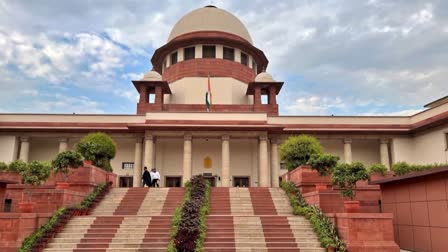New Delhi:The Supreme Court has said a marriage is sacred as it provides a lifelong, dignity-affirming, equal, consensual and healthy union of two individuals and mere registration of marriage in absence of a proper ceremony would not be valid under the Hindu Marriage Act. The apex court said a Hindu marriage is a samskara and a sacrament which has to be accorded its status as an institution of great value in Indian society.
A bench of Justices B V Nagarathna and Augustine George Masih said: “we urge young men and women to think deeply about the institution of marriage even before they enter upon it and as to how sacred the said institution is, in Indian society”.
The bench, in an order passed on April 19, said a marriage is not an event for ‘song and dance’ and ‘wining and dining’ or an occasion to demand and exchange dowry and gifts by undue pressure leading to possible initiation of criminal proceedings thereafter.
The bench said the critical conditions for the solemnizing of a Hindu marriage should be assiduously, strictly and religiously followed and this is for the reason that the genesis of a sacred process cannot be a trivial affair. “The sincere conduct of and participation in the customary rites and ceremonies under Section 7 of the Hindu Marriage Act, 1955 ought to be ensured by all married couples and priests who preside over the ceremony”, said the bench.
“A marriage is not a commercial transaction. It is a solemn foundational event celebrated so as to establish a relationship between a man and a woman who acquire the status of a husband and wife for an evolving family in future which is a basic unit of Indian society”, it said.
The bench said that a Hindu marriage facilitates procreation, consolidates the unit of family and solidifies the spirit of fraternity within various communities. After all, a marriage is sacred for it provides a lifelong, dignity-affirming, equal, consensual and healthy union of two individuals, it added.
The bench criticized the practice of young men and women seeking to acquire the status of being a husband and a wife to each other in the absence of a valid marriage ceremony. “Under the provisions of the Act (Hindu Marriage Act, 1955), there should not only be compliance of the conditions as prescribed under Section 5 of the said Act but also the couple must solemnise a marriage in accordance with Section 7 of the Act. In the absence of there being any such marriage in accordance with Section 7 of the Act, a certificate issued in that regard by any entity is of no legal consequence”, said the bench.
